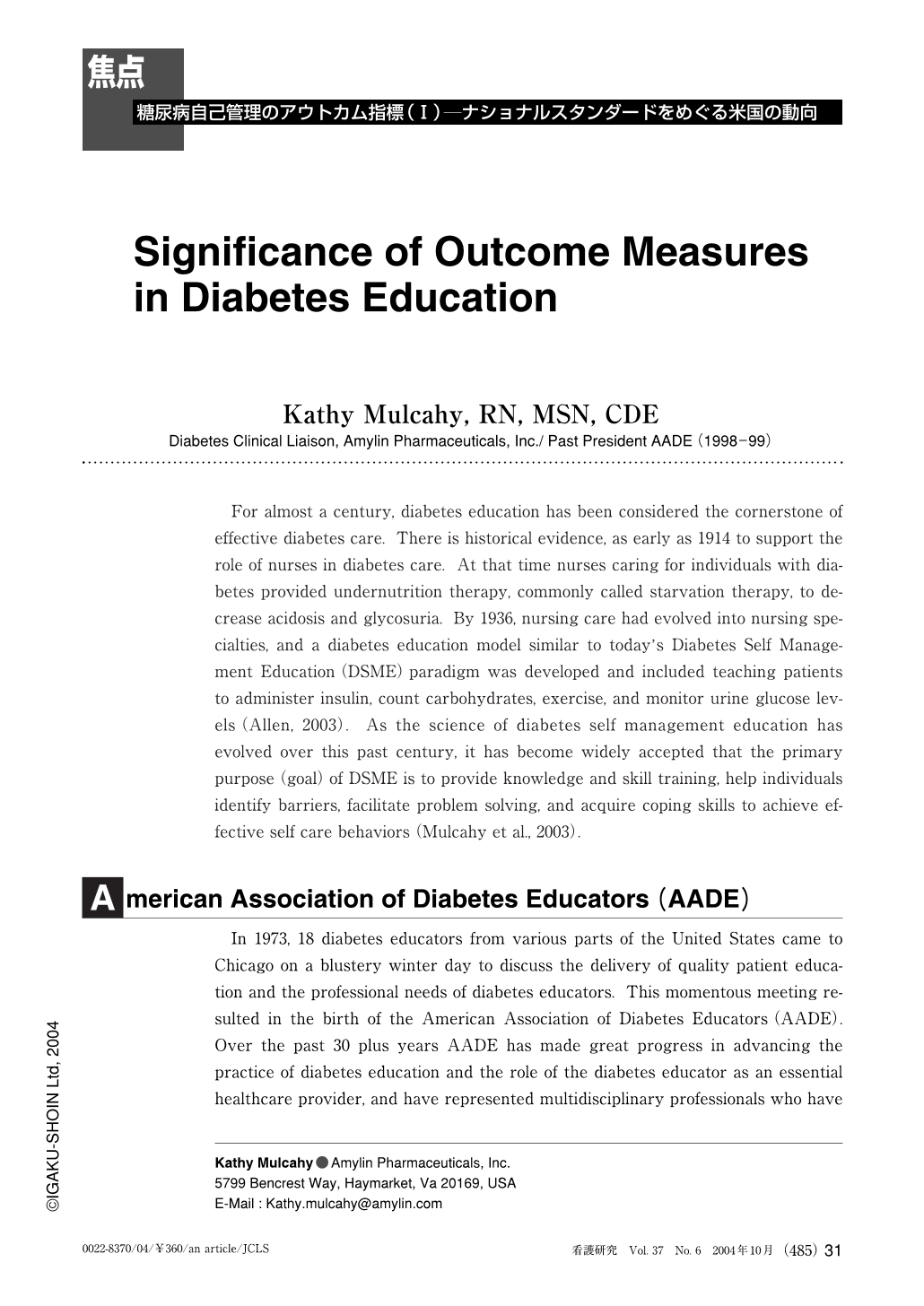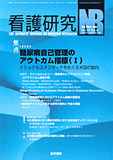Japanese
English
- 有料閲覧
- Abstract 文献概要
- 1ページ目 Look Inside
For almost a century, diabetes education has been considered the cornerstone of effective diabetes care. There is historical evidence, as early as 1914 to support the role of nurses in diabetes care. At that time nurses caring for individuals with diabetes provided undernutrition therapy, commonly called starvation therapy, to decrease acidosis and glycosuria. By 1936 ,nursing care had evolved into nursing specialties, and a diabetes education model similar to today's Diabetes Self Management Education(DSME) paradigm was developed and included teaching patients to administer insulin, count carbohydrates, exercise, and monitor urine glucose levels(Allen, 2003). As the science of diabetes self management education has evolved over this past century, it has become widely accepted that the primary purpose(goal) of DSME is to provide knowledge and skill training, help individuals identify barriers, facilitate problem solving, and acquire coping skills to achieve effective self care behaviors(Mulcahy et al., 2003).
American Association of Diabetes Educators(AADE)
In 1973, 18 diabetes educators from various parts of the United States came to Chicago on a blustery winter day to discuss the delivery of quality patient education and the professional needs of diabetes educators. This momentous meeting resulted in the birth of the American Association of Diabetes Educators (AADE). Over the past 30 plus years AADE has made great progress in advancing the practice of diabetes education and the role of the diabetes educator as an essential healthcare provider, and have represented multidisciplinary professionals who have carried the diabetes self-management message to hundreds of thousands of people with diabetes. The organization, now over 11,000 strong, was built by and for diabetes educators, and has worked to change the face of health care one member at a time, one publication at a time, one initiative at a time. This 30-year journey brings diabetes educators to pivotal place in diabetes education and care, and the healthcare industry overall (AADE, 2003a).
For almost a century, diabetes education has been considered the cornerstone of effective diabetes care. There is historical evidence, as early as 1914 to support the role of nurses in diabetes care. At that time nurses caring for individuals with diabetes provided undernutrition therapy, commonly called starvation therapy, to decrease acidosis and glycosuria. By 1936, nursing care had evolved into nursing specialties, and a diabetes education model similar to today's Diabetes Self Management Education (DSME) paradigm was developed and included teaching patients to administer insulin, count carbohydrates, exercise, and monitor urine glucose levels (Allen, 2003). As the science of diabetes self management education has evolved over this past century, it has become widely accepted that the primary purpose (goal) of DSME is to provide knowledge and skill training, help individuals identify barriers, facilitate problem solving, and acquire coping skills to achieve effective self care behaviors (Mulcahy et al., 2003).
American Association of Diabetes Educators (AADE)
In 1973, 18 diabetes educators from various parts of the United States came to Chicago on a blustery winter day to discuss the delivery of quality patient education and the professional needs of diabetes educators. This momentous meeting resulted in the birth of the American Association of Diabetes Educators (AADE). Over the past 30 plus years AADE has made great progress in advancing the practice of diabetes education and the role of the diabetes educator as an essential healthcare provider, and have represented multidisciplinary professionals who have carried the diabetes self-management message to hundreds of thousands of people with diabetes. The organization, now over 11,000 strong, was built by and for diabetes educators, and has worked to change the face of health care one member at a time, one publication at a time, one initiative at a time. This 30-year journey brings diabetes educators to pivotal place in diabetes education and care, and the healthcare industry overall (AADE, 2003a).

Copyright © 2004, Igaku-Shoin Ltd. All rights reserved.


